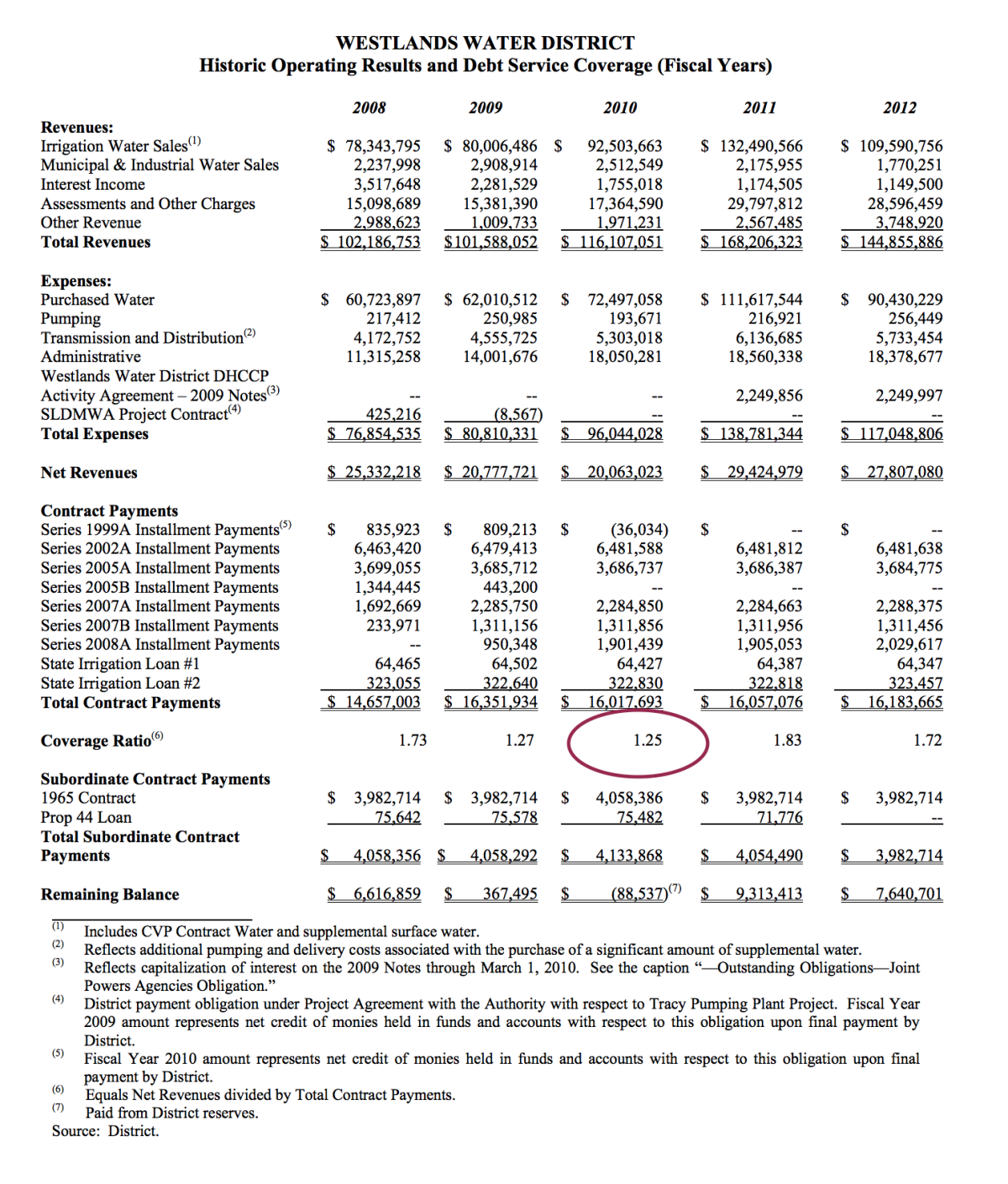A huge water district cooks its books--and gets a wrist-slap from the feds
- Share via
The Westlands Water District is the biggest of big shots in the water world of California's Central Valley--so big that it was able late last year to beat the federal government in a secret deal to secure a reliable water supply for its member almond and pistachio growers in perpetuity--despite the fact that the deal makes a hash of efforts to produce an overall state water policy.
But on Wednesday, the Securities and Exchange Commission unveiled another aspect to Westlands' way of doing business: cooking the books. The SEC slapped the district and two officers with a total of $195,000 in penalties for faking financial records in connection with a 2012 bond issue.
A little Enron accounting.
— --Westlands General Manager Thomas Birmingham describes the financial finagling caught by the SEC
As my colleague Geoffrey Mohan reports, the SEC is crowing about this being its largest settlement ever in a case against a municipal bond agency. Sadly, however, the agency's action is just another slap on the wrist for white collar wrongdoers. Nothing in the settlement, big as it is, will deter either Westlands or any other municipal bond issuer from trying to pull the same stunt in the future.
What's especially disturbing is that the SEC, despite calling this a case of "negligence," had evidence that the district and its officers, General Manager Thomas Birmingham and former Treasurer Louie Ciapponi, knew exactly what they were doing. When questioned by a Westlands board member about the transaction at issue, Birmingham joked that they were engaging in "a little Enron accounting."
Yet no one admitted to wrongdoing in the settlement, making this another case of something being done illegally, yet without any human being actually being identified as the wrongdoing party. What's left unsaid in the SEC action is why Birmingham or Ciapponi should be henceforth permitted to hold any official office with an agency issuing bonds to the public. Also escaping scot-free, at least for the moment, is the "independent auditor" who told Westlands that the financial maneuvers the SEC found improper were "permissible."
----------------------
Related:
How a rich water district beat the government in a secret deal
A huge water district defends a secret handout
----------------------
The auditing firm isn't identified in the SEC documents, but the firm whose 2012 Westlands audit is attached to the bond circular at the heart of the SEC's case is Clovis-based Sampson, Sampson & Patterson. We've asked the firm to comment, but have not received a response.
Let's look at what they were up to. In 2009, the district discovered that its revenues would fall $10 million below what it needed to meet bond covenants requiring it to collect 25% more each year than it had to pay in principal and interest on its debt. In fact, because of the drought, its coverage ratio wasn't 1.25, but as little as 0.11. Had that happened, it would have been in technical default on some of its bonds.

Instead of bringing revenue up by raising rates to its users by 11.6%, which would have done the job, Westlands reclassified some of its cash holdings as revenue and moved some other money around. It did so, the SEC says, "solely" to meet the covenant.
What concerns the SEC is that the misstatement made it into the official offering for a $77-million refunding bond issue in 2012. That misled buyers of those bonds into thinking that the district invariably collected enough money to cover its bonds, when the truth is it had fallen hugely short in 2010. That would have made a difference to many investors, who might have decided to stay away.
The implications of all this are serious. For one thing, it shows that Westlands management is willing to mislead investors simply to save money for its users. It raises the question of whether a district that behaves this way is a suitable partner for the federal government in other deals, including the huge litigation settlement last year that was negotiated in secret, and that amounted to a huge federal giveaway to the district. And it could affect a Congressional debate over that settlement. It should.
The SEC action casts a shadow over $200 million in bonds issued by Westlands and a neighboring district, which have been placed on negative credit watch by the rating agency Moody's. But the darkest shadow is cast over the cause of good governance. As long as senior officials can boast about doing "Enron accounting" and then, when they're caught, get off without admitting their wrongdoing for the record, there's little hope that the public interest will be protected.
Keep up to date with Michael Hiltzik. Follow @hiltzikm on Twitter, see his Facebook page, or email [email protected].
Sign up for Essential California
The most important California stories and recommendations in your inbox every morning.
You may occasionally receive promotional content from the Los Angeles Times.








